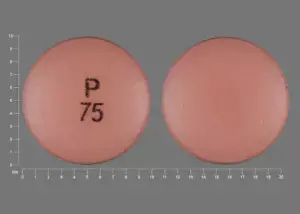- Home
- Medical news & Guidelines
- Anesthesiology
- Cardiology and CTVS
- Critical Care
- Dentistry
- Dermatology
- Diabetes and Endocrinology
- ENT
- Gastroenterology
- Medicine
- Nephrology
- Neurology
- Obstretics-Gynaecology
- Oncology
- Ophthalmology
- Orthopaedics
- Pediatrics-Neonatology
- Psychiatry
- Pulmonology
- Radiology
- Surgery
- Urology
- Laboratory Medicine
- Diet
- Nursing
- Paramedical
- Physiotherapy
- Health news
- Fact Check
- Bone Health Fact Check
- Brain Health Fact Check
- Cancer Related Fact Check
- Child Care Fact Check
- Dental and oral health fact check
- Diabetes and metabolic health fact check
- Diet and Nutrition Fact Check
- Eye and ENT Care Fact Check
- Fitness fact check
- Gut health fact check
- Heart health fact check
- Kidney health fact check
- Medical education fact check
- Men's health fact check
- Respiratory fact check
- Skin and hair care fact check
- Vaccine and Immunization fact check
- Women's health fact check
- AYUSH
- State News
- Andaman and Nicobar Islands
- Andhra Pradesh
- Arunachal Pradesh
- Assam
- Bihar
- Chandigarh
- Chattisgarh
- Dadra and Nagar Haveli
- Daman and Diu
- Delhi
- Goa
- Gujarat
- Haryana
- Himachal Pradesh
- Jammu & Kashmir
- Jharkhand
- Karnataka
- Kerala
- Ladakh
- Lakshadweep
- Madhya Pradesh
- Maharashtra
- Manipur
- Meghalaya
- Mizoram
- Nagaland
- Odisha
- Puducherry
- Punjab
- Rajasthan
- Sikkim
- Tamil Nadu
- Telangana
- Tripura
- Uttar Pradesh
- Uttrakhand
- West Bengal
- Medical Education
- Industry
Even Low dose diclofenac not risk neutral for cardiovascular events

Even Low dose diclofenac is not risk neutral for cardiovascular events suggests a new study published in the European Heart Journal - Cardiovascular Pharmacotherapy
A study was done to examine the dose dependency of diclofenac's cardiovascular risks.
Using Danish health registries and the target trial emulation design, we conducted a series of 300 nationwide cohort studies during 1996–2020, each mimicking the strict design criteria of a clinical trial. Adults eligible for inclusion had no recent non-steroidal anti-inflammatory drug prescriptions, contraindications (gastrointestinal diseases, thrombocytopenia, or heart failure), or conditions with low adherence (dementia or psychiatric disease). Diclofenac initiators were compared to healthcare-seeking non-initiators and head-to-head using an approximated high dose of ≥150 mg/day vs. low dose of <150 mg/day. Cox regression was used to compute the incidence rate ratio (IRR) of major adverse cardiovascular events (MACE) within 30 days following initiation. They adjusted for age, sex, calendar period, comorbidity, comedication, and socioeconomic position.
Compared with non-initiators (n = 3 789 617), diclofenac initiators (n = 1 894 834) had an approximately 50% increased rate of MACE (IRR 1.53, 95% confidence interval [CI]: 1.43–1.63), reflecting IRRs of 1.54 (95% CI: 1.40–1.69) for myocardial infarction, 1.29 (1.14–1.45) for ischaemic stroke, and 1.92 (1.71–2.16) for cardiac death. The risk increase was observed for most conditions with chronic pain, in particular headache (IRR 5.10, 95% CI: 1.46–17.85). The risk increase was similar for initiators of high- (IRR 1.55, 95% CI: 1.40–1.71) and low-dose diclofenac (IRR 1.52, 1.41–1.63), which was confirmed in a head-to-head analysis (IRR 1.01, 95% CI: 0.90–1.12).
Initiators of high- and low-dose diclofenac had comparably increased cardiovascular risks. This finding provides evidence against the assumption that low-dose diclofenac is risk-neutral.
Reference:
Morten Schmidt, Lars Arendt-Nielsen, Ellen-Margrethe Hauge, Henrik Toft Sørensen, Lars Pedersen, High- vs. low-dose diclofenac and cardiovascular risks: a target trial emulation, European Heart Journal - Cardiovascular Pharmacotherapy, 2023;, pvad018,https://doi.org/10.1093/ehjcvp/pvad018
Dr. Shravani Dali has completed her BDS from Pravara institute of medical sciences, loni. Following which she extensively worked in the healthcare sector for 2+ years. She has been actively involved in writing blogs in field of health and wellness. Currently she is pursuing her Masters of public health-health administration from Tata institute of social sciences. She can be contacted at editorial@medicaldialogues.in.
Dr Kamal Kant Kohli-MBBS, DTCD- a chest specialist with more than 30 years of practice and a flair for writing clinical articles, Dr Kamal Kant Kohli joined Medical Dialogues as a Chief Editor of Medical News. Besides writing articles, as an editor, he proofreads and verifies all the medical content published on Medical Dialogues including those coming from journals, studies,medical conferences,guidelines etc. Email: drkohli@medicaldialogues.in. Contact no. 011-43720751


